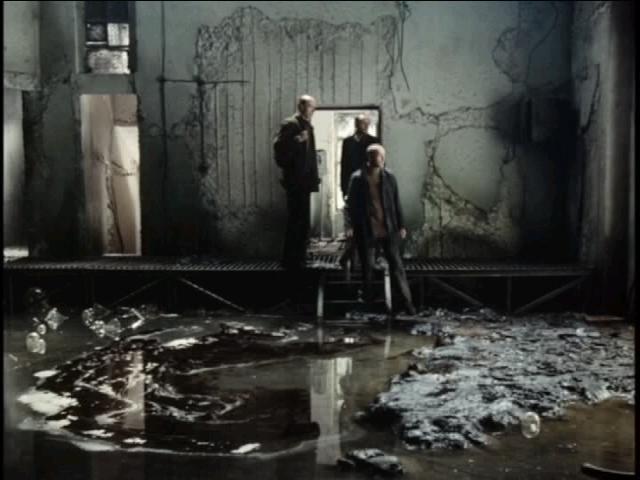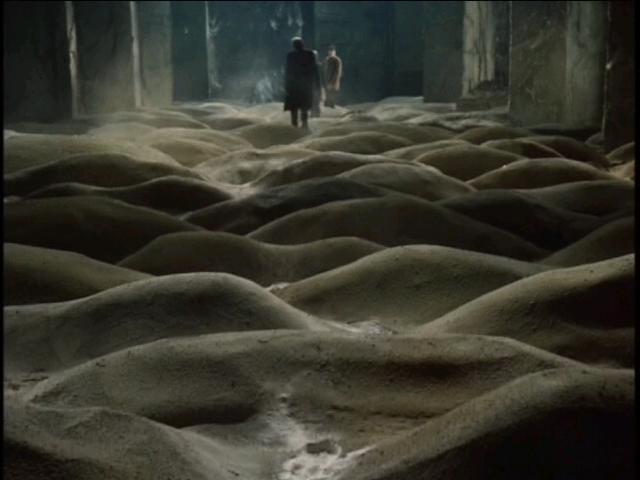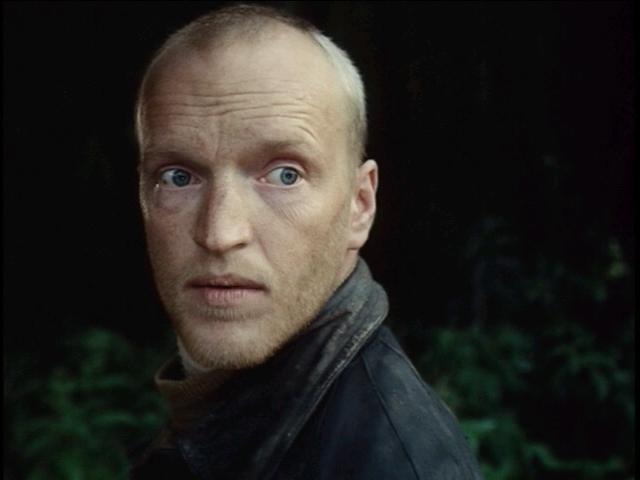“The Zone wants to be respected — otherwise it will punish.”
|

Synopsis:
A taciturn guide (Aleksandr Kajdanovsky) known as “Stalker” leads a writer (Anatoli Solonitsyn) and a scientist (Nikolai Grinko) across police barriers into the mysterious, dangerous, forbidden Zone, where it is said one’s deepest wishes can be granted.
|
|
Genres, Themes, Actors, and Directors:
- Andrei Tarkovsky Films
- Psychic Powers
- Road Trip
- Russian Films
- Science Fiction
Review:
Andrei Tarkvosky’s cerebral, visually evocative films are not for all tastes, but fans embrace them as indispensable cult favorites. In Stalker, Tarvosky tells the enigmatic story of a paid guide who accompanies willing visitors across guarded state lines into a mysterious place known as “the Zone”. Some believe the Zone to be an allegorical representation of Soviet nuclear fallout and government secrecy, but it’s entirely possible to watch Stalker without concerning oneself about political undertones. Like Tarkovsky’s Solaris (1972), Stalker requires patience to sit through, and a willingness to transcend normal narrative pacing; but if you stick with it, chances are you’ll be moved in some way by this thought-provoking film, which is only marred by its confusing and unsatisfying ending.
Redeeming Qualities and Moments:
- A challenging, highly original premise for a science fiction film

- Haunting cinematography

- Many astonishing images

- Fine performances — particularly by Aleksandr Kajdanovsky as the Stalker

- Eduard Artemyev’s effective score
Must See?
Yes. This “intellectual” cult favorite is a modern masterpiece of Russian cinema.
Categories
(Listed in 1001 Movies You Must See Before You Die)
Links:
|


One thought on “Stalker (1979)”
First viewing. A once must-see – however…since this is a Tarkovsky film, whether you are going to be able to handle it or not is strictly up to the individual.
Watching this film is like watching a dream awake. That’s probably the best way to approach it. Otherwise, if you start watching it as a regular film, you may find yourself frustrated – or antsy in some form.
I’m not going to pretend I understand the film – certainly not on one viewing. But whether or not I could sit through it again…I don’t know. (I just heard from a friend who told me he has seen it multiple times – so it’s going to depend on personal temperament.)
But even getting through it once…you have to commit to it on its own terms. That requires patience and concentration. You can’t allow your mind to wander – or you may really be completely lost. It’s like watching a Samuel Beckett play (not really a favorite playwright of mine but he certainly has a huge fan base, still).
There is a whole lot of philosophical/existential talk to be found. (I think I even detected the Book of Revelation thrown in at one point.) The film does seem to hinge on matters of faith – and it seems to me there is also an oblique indictment of Russia afoot here (all too relevant still) as well as mankind in general (“They don’t want to know anything. All they do is gobble.”)
When you least expect it, the script is good for some particularly memorable passages. i.e.:
“For softness is great and strength is worthless. When a man is born, he is soft and pliable. When he dies, he is strong and hard. When a tree grows, it is soft and pliable. But, when it is dry and hard, it dies. Hardness and strength are death’s companions. Flexibility and softness are the embodiment of life. That which has become hard, shall not triumph.”
…but even something as potentially profound as that can beg interpretation.
I found myself wondering how Tarkovsky instructed his cast: did he simply tell them to play it all with conviction?, without particularly understanding what they were doing? …Possibly.
The film gains points for Tarkovsky’s direction, its overall visual design and its cinematography. But it’s true what is said in it: “The Zone is a very complex maze of traps.” Whether or not you’re up to the challenge of the complexity here is up to you.